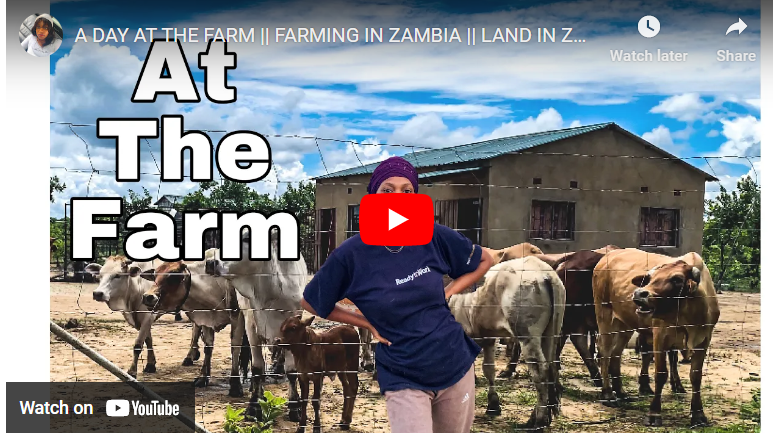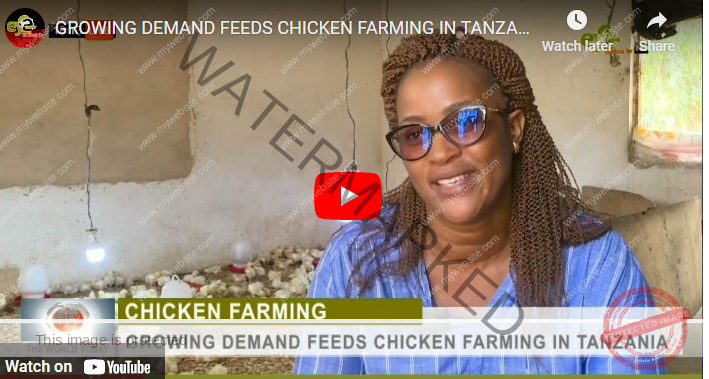In the heartland of Africa, where agriculture forms the backbone of the economy, Zimbabwe has witnessed remarkable success stories in various sectors. One such tale of triumph can be attributed to the poultry farming industry, where a visionary and dedicated entrepreneur has emerged as the wealthiest poultry farmer in the country.
Francis Zuze, Farai Mashazhu, Loina Mironga, Beauty Jiji, and Terrence Maphosa are among the wealthiest poultry farmers in Zimbabwe, recognized for their exceptional achievements and substantial financial success in the poultry industry. Their expertise and dedication have positioned them as prominent figures in Zimbabwe’s thriving poultry farming sector, contributing to their status as some of the richest poultry farmers in the country.
This article aims to shed light on the journey of this extraordinary individual, highlighting the factors that contributed to their success and the lessons we can learn from their remarkable achievements.
Top Most Successful Poultry Farmer in Zimbabwe
Poultry farming is an important agriventure in Zimbabwe and many farmers are taking advantage of the lucrativeness of poultry farming.
Interestingly, we were able to identify some of the successful and richest poultry farmers in Zimbabwe. Their names have been outlined below.
Read Also: Top 10 Richest Pig Farmers in Africa
1. Francis Zuze
Francis Zuze has emerged as one of the richest poultry farmer in Zimbabwe, thanks to his remarkable success in the industry.
His achievements can be attributed to his participation in the Presidential Rural Poultry Scheme, where he supplies an impressive average of 60 crates of fertilized eggs per week.
Zuze’s involvement in the scheme has not only contributed to the development of rural areas but has also opened up opportunities for urbanites.
The scheme aims to promote inclusive development, ensuring that no one is left behind, regardless of their location.
Read Also: Top 5 Richest Farmers in Zimbabwe
The consistent supply of fertilized eggs has been a significant source of income for Zuze. With the revenue generated from his poultry business, he has been able to venture into a new project: cattle ranching.
This diversification of his agricultural activities demonstrates his entrepreneurial mindset and the ability to seize opportunities for growth.
Zuze’s success story serves as an inspiration to other farmers in Zimbabwe. His commitment and dedication to his poultry business have enabled him to transform it into a commercial entity.
By supplying a large number of fertilized eggs, he has not only contributed to the growth of the industry but also improved his own financial situation.
Read Also: Top 13 Richest Farmers in USA
The expansion into cattle ranching showcases Zuze’s ability to leverage his poultry business’s success to explore new avenues of income generation.
This diversification strategy demonstrates his vision and adaptability as a farmer.
#2. Farai Mashazhu
Farai Mashazhu, a resident of the Greencroft suburb in Zimbabwe’s capital, has emerged as one of the richest poultry farmers in the country.
She recently began supplying fertilized eggs as part of a program that has created a reliable and lucrative market for her products.
Read Also: Top 5 Richest Farmers in UK
Mashazhu appreciates the program’s benefits, particularly the assurance of a ready market and hassle-free payment. With this program, she can confidently plan her business operations, knowing that she will receive her payment without any difficulties. While currently supplying eggs, Mashazhu has ambitious plans to expand her business by supplying chicks in the near future.
#3. Loina Mironga
Loina mironga is an ardent poultry farmer who started small and now, she has grown to become one of the richest poultry farmers in Zimbabwe.
Mironga used to struggle to get buyers during the early days of her business. She has overcome the challenges of finding buyers for her indigenous chickens by seizing the opportunity presented by the Presidential Rural Poultry Scheme.
Read Also: Richest Farmers in England
Mironga now supplies day-old chicks, which has proven to be a viable and profitable business venture for her.
Mironga has capitalized on the market by supplying her day-old chicks to the Zimbabwe Free Range Poultry Association, which is situated at the Exhibition Park in Harare.
Since November, she has been actively involved in supplying chicks through this channel. Her participation in the scheme has not only provided her with a steady market but has also opened doors to financial success in the poultry industry.
Read Also: Top 5 Richest Farmers in the Philippines
By supplying day-old chicks, Mironga demonstrates her commitment to meeting the demands of the market.
This approach allows other poultry farmers to benefit from having a reliable source of young and healthy chicks for their own businesses.
Mironga’s contribution to the industry highlights the significance of cooperation and collaboration among farmers, as well as the positive impact of government initiatives like the Presidential Rural Poultry Scheme.
#4. Terrence Maphosa
Terrence Maphosa, the founder and CEO of KwaTerry Chickens, has emerged as one of the most successful poultry farmers in Zimbabwe.
His journey into farming began when he made the decision to leave city life behind and venture into the rural areas after facing challenges in securing employment, despite holding a political science degree from the University of Zimbabwe.
Recognizing that his academic qualification was not aligning well with the demands of the local job market, Maphosa decided to explore alternative avenues for success.
Read Also: Top 5 Richest Farmers In Ontario
He turned his attention to the agricultural sector, specifically poultry farming, as a viable business opportunity.
With his determination and entrepreneurial spirit, Maphosa founded KwaTerry Chickens, which has since become a prominent player in the poultry industry.
His decision to focus on poultry farming has proven to be a wise choice, as the demand for poultry products continues to grow in Zimbabwe and beyond.
Maphosa’s success story serves as an inspiration to many aspiring farmers, showcasing the potential for success in agriculture and the importance of finding innovative solutions to overcome job market challenges.
Read Also: Top Richest Farmers in Florida
By embracing rural farming and pursuing his passion for poultry, he has not only built a thriving business but has also contributed to the development of the local economy and the agricultural sector.
Maphosa’s journey highlights the significance of perseverance and resilience in the face of adversity.
His decision to utilize his skills and knowledge in an unconventional way has not only allowed him to create employment opportunities for himself but has also contributed to the livelihoods of others in the community.
Farming Systems Used by these Richest Farmers
- Diversification: Successful farmers often adopt diversified farming systems, combining multiple crops and livestock to mitigate risks and maximize profits.
- Modern Technology: Utilizing modern agricultural technologies, such as improved irrigation systems, mechanization, and precision farming, can enhance productivity and efficiency.
- Sustainable Practices: Implementing sustainable farming practices, such as organic farming, conservation agriculture, and efficient resource management, can lead to long-term profitability and environmental stewardship.
- Value Addition: Adding value to agricultural products through processing, packaging, and branding can increase market opportunities and profitability for farmers.
Successful Strategies of the Richest Farmers in Zimbabwe
- Market-oriented Approach: Successful farmers focus on understanding market demands, identifying profitable niche markets, and tailoring their production to meet consumer preferences.
- Business Acumen: Implementing sound business management practices, including financial planning, cost control, marketing strategies, and effective record-keeping, is crucial for long-term profitability.
- Continuous Learning: Keeping up with agricultural trends, attending training programs, and adopting innovative practices help successful farmers stay ahead in a competitive market.
- Networking and Collaboration: Building strong networks within the agricultural community, collaborating with other farmers, and engaging in partnerships with relevant stakeholders can lead to knowledge sharing, access to resources, and market expansion opportunities.
Factors that Contribute to Farming Success in Zimbabwe
- Access to Finance: Adequate access to credit and financial resources is essential for farmers to invest in inputs, equipment, and infrastructure, and to sustain and expand their operations.
- Supportive Policies: Favorable government policies, such as supportive agricultural programs, access to markets, and land tenure security, can foster an enabling environment for farming success.
- Infrastructure Development: Well-maintained rural infrastructure, including roads, irrigation systems, storage facilities, and access to markets, enhances farmers’ productivity and market connectivity.
- Research and Extension Services: Availability of quality agricultural research and extension services that provide technical advice, training, and dissemination of best practices contribute to improved productivity and farming success.
Challenges of Farming in Zimbabwe
- Climate Variability: Zimbabwe’s agriculture is susceptible to climate-related risks such as droughts, floods, and erratic rainfall patterns, which can impact crop yields and livestock productivity.
- Limited Access to Capital: Many farmers face challenges in accessing affordable credit, which restricts their ability to invest in inputs, technology, and infrastructure improvements.
- Land Constraints: Land distribution and tenure issues, including challenges in accessing productive land, can hinder farming activities and limit expansion opportunities for farmers.
- Market Access and Pricing: Limited market access, price volatility, and lack of value chain development can affect farmers’ profitability and income stability.
- Pests and Diseases: Outbreaks of pests, diseases, and crop pests pose significant challenges to agricultural production, requiring effective pest management strategies.
Lucrativeness of Farming in Zimbabwe
Farming in Zimbabwe can be lucrative, especially when farmers employ effective strategies, capitalize on market opportunities, and overcome the challenges.
Factors contributing to the lucrativeness of farming include the country’s fertile soils, diverse agroecological zones, and a growing domestic and regional demand for agricultural products.
Favorable policies and supportive programs aimed at enhancing agricultural productivity and market access can create opportunities for farmers to generate substantial income and contribute to economic development.
However, the profitability of farming is also influenced by factors such as input costs, market dynamics, climatic conditions, and access to resources and markets, which can vary over time and across different farming sectors.
Richest Poultry Farmer in Africa
The wealthiest poultry farmer in Africa may vary and change over time due to various factors such as market conditions, investments, and business performance.
It is important to note that individual wealth can fluctuate, and there may not be publicly available data on the specific wealth of poultry farmers in Africa.
Richest Poultry Farmer in the World
Similarly, identifying the richest poultry farmer in the world can be challenging, as wealth rankings and individuals’ financial information may not be readily accessible or regularly updated.
The poultry industry is vast, and there are successful and wealthy poultry farmers worldwide, but specific rankings may not be readily available.
How to Make Millions from Poultry Farming
While there is no guaranteed formula for making millions from poultry farming, there are several factors that can contribute to the profitability of a poultry farming business:
- Market Research: Identify lucrative market opportunities, assess demand, and tailor your production to meet consumer preferences.
- Efficient Operations: Implement effective management practices, optimize feed formulation, manage disease control, and maintain proper biosecurity measures.
- Scale and Automation: Expanding your operations and investing in modern technologies and automated systems can improve efficiency and productivity.
- Value Addition: Consider processing and adding value to poultry products by creating branded products or diversifying into related industries such as poultry processing or egg products.
- Business Acumen: Develop strong financial management skills, create a comprehensive business plan, monitor costs, and explore avenues for cost reduction.
- Networking and Collaboration: Build partnerships, join industry associations, and collaborate with suppliers, processors, and distributors to expand your market reach and optimize supply chain efficiency.
- Continuous Learning: Stay updated on industry trends, attend training programs, and invest in your knowledge and skills to adapt to changing market dynamics.
Richest Farmer in the World
Determining the richest farmer in the world can be challenging, as wealth can be generated from various sectors within the agriculture industry, including crop farming, livestock rearing, agribusiness, and other related ventures.
Wealth rankings can also change over time due to market fluctuations, investments, and diversification strategies.
Local Chicken Farming
Local chicken farming, also known as indigenous or backyard chicken farming, involves rearing native breeds that are adapted to the local environment and conditions.
It is a popular form of poultry farming in many regions, offering opportunities for small-scale farmers to generate income and contribute to food security.
Local chicken farming can be a profitable venture, especially when coupled with proper management practices, access to markets, and value addition opportunities.
Working on a Chicken Farm
Working on a chicken farm can provide valuable experience and insights into the poultry industry.
It offers opportunities to learn about daily operations, management practices, and husbandry techniques.
Working on a chicken farm can provide hands-on experience in tasks such as feeding, disease control, flock management, and facility maintenance.
It can be a stepping stone for those interested in starting their own poultry farming business or pursuing a career in the agricultural sector.
Conclusion
The remarkable success story of the richest poultry farmer in Zimbabwe showcases the power of passion, innovation, and strategic thinking. Through their unwavering dedication, entrepreneurial vision, and commitment to excellence, they have transformed the poultry farming landscape in the country. Their achievements serve as a testament to the immense potential of the agricultural sector and inspire others to follow in their footsteps.




